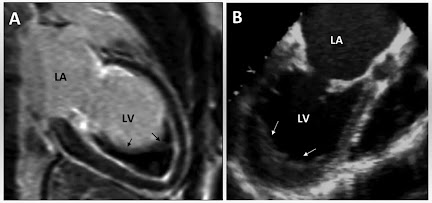Hypertrophy
Definition –
Hypertrophy is an increase in the size of parenchymal cells resulting in
enlargement of the organ or tissue, without any change in the number of cells.
Causes –
It may be physiological or pathological…
PHYSIOLOGICAL
HYPERTROPHY – Enlarged size of uterus in pregnancy.
PATHOLOGICAL
HYPERTROPHY –
- Hypertrophy of cardiac muscles, e.g. systemic hypertension, aortic valve disease (stenosis and insufficiency), mitral insufficiency.
- Hypertrophy of smooth muscles, e.g. cardiac achalasia (in oesophagus), pyloric stenosis (in stomach), intestinal strictures, muscular arteries in hypertension.
- Hypertrophy of skeletal muscles, e.g. athletes and manual labourers.
- Compensatory hypertrophy after removal of contralateral organ, e.g. nephrectomy, adrenal hyperplasia.
 |
| Cardiac Hypertrophy |
MORPHOLOGICAL FEATURES – The affected organ is enlarged and heavy. There
is enlargement of muscles fibres as well as of nuclei. At ultra-structural
level, there is increased synthesis of DNA and RNA, protein and increased
number of organelles such as mitochondria, endoplasmic reticulum and
myofibrils.
Similar Posts -
Similar Posts -






No comments:
Post a Comment
Please do not enter any spam link in the comment box